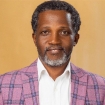PwC’s Africa Workforce Hopes and Fears Survey 2025 gathered 1,753 responses across Algeria, Kenya, Morocco, Nigeria, and South Africa, offering fresh insights into how employees view the future of work. Findings highlight themes such as AI adoption in Africa, evolving workforce priorities and career intentions, skills relevance, job security, and the employee experience. This year’s report translates these perspectives into actionable strategies for leaders, emphasising transformation in the African workforce.
Perceptions of change: How employees view AI and the future of work
GenAI is revolutionising ways of working and transforming how employees create value, apply information, and deliver results at an unprecedented speed and scale. However, widespread GenAI adoption in the workplace is still limited.


More than half of workers in Africa see a major impact of technological change on their future jobs.
Key drivers to motivating the workforce of tomorrow
African workers are highly motivated compared to the global workforce by positive mood, strategic alignment and psychological safety, while change drivers and negative mood remain the weakest influences.

High optimism and job security in Africa are contributing to worker motivation with 85% of workers who believe that their current jobs give them job security.
Further findings
Younger workers in Africa remain less enthusiastic about the traditional work environment, signaling a need for flexible work models, purpose-driven roles, and career development opportunities to boost engagement.
Subscribe to our mailing list
Subscribe to receive future editions of our Global Workforce Hopes and Fears Survey
Contact us

Dr Dayalan Govender (PhD)
(Associate Professor) People and Organisation Africa Leader, PwC South Africa
Tel: +27 (0) 11 797 4846

Marthle du Plessis
Director | Workforce of the Future, PwC South Africa
Tel: +27 (0) 11 797 4075




Prelene Parkash
Associate Director | People and Organisation - Energy, Utilities and Resources Lead, PwC South Africa
Tel: +27 (0) 11 797 4000

Beverley Green
Associate Director | People and Organisation - Government and Public Sector Lead, PwC South Africa
Tel: +27 (0) 11 797 4000

Angelique Herbst
Associate Director | People and Organisation - Financial Services and Telecommunication Lead, PwC South Africa
Tel: +27 (0) 11 287 0474





















